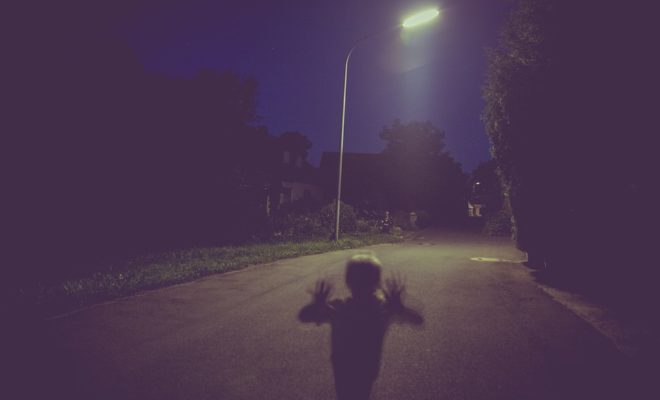FEAR AND REASON

In humanized life it has finally turned out to be feasible for expansive quantities of individuals to go from the support to the grave while never having had a string of authentic dread. A hefty portion of us need an assault of mental malady to show us the importance of the word.”” William James.
We have all heard the apparently segregating comments that dread is typical and strange, and that ordinary dread is to be viewed as a companion, while unusual dread ought to be pulverized as a foe.
The truth of the matter is that no supposed typical dread can be named which has not been obviously missing in a few people who have had each cause therefor. In the event that you will keep running over mankind’s history in your psyche, or look about yea in the present life, you will discover here and there people who, in circumstances or before items which should, as any dreadful soul will demand, to motivate the sentiment in any event typical self-securing apprehension, are all things considered entirely without the inclination. They have each inclination and thought requested with the exception of dread. The possibility of self-safeguarding is as firmly present as with the most degradedly hesitant or startled, however fear they don’t have the foggiest idea. This bold attention to fear proposing conditions might be because of a few causes. It might come about because of sacred make-up, or from since a long time ago kept preparing or habituation, or from religious bliss, or from a superbly quiet feeling of profound selfhood which is unhurtable, or from the activity of exceptionally magnified reason. Whatever the clarification, the reality remains: the very causes which energize fear in the vast majority of us, just interest, with such individuals, if by any means. to the sense of self-conservation and to reason, the thought-component about the spirit which makes for individual peace and wholeness.
Exile all dread.
It is on such contemplations that I have come to hold that all genuine dread feeling ought to and might be expelled from our life, and that what we call “”typical dread”” ought to be substituted in our dialect by “”impulse”” or by “”reason,”” the component of dread being dropped through and through.
“”Everybody can affirm that the psychical state called fear comprises of mental representations of certain agonizing outcomes”” (James). The mental representations might be exceptionally black out in that capacity, however hurt to self is definitely present. Assuming, then, it can be significantly trusted that the genuine self can’t be harmed; if the reason can be brought to consider clearly and believingly all calming contemplations; if the self can be held intentionally in the affirmation that the White Life encompasses the genuine self, and is without a doubt inside that self, and will endure “”no abhorrence to come near,”” while every one of the impulses of self safeguarding might be flawlessly dynamic, fear itself must be evacuated “”the extent that the east is from the west.””
These are the routes, then, in which any event for dread might be separated:
As a notice and as a producer of frenzy. In any case, let us say that the notice ought to be comprehended as given to reason, that dread need not show up by any means, and that the frenzy is consummately pointless agony. Because of these segregations, we may now go ahead to a preparatory investigation of dread.
preparatory investigation of dread.
Dread is (an) a motivation, (b) a propensity, (c) an infection.
Fear, as it exists in man, is a pretend of rational soundness, an animal of the creative energy, a condition of madness.
Besides, dread is, currently of the nerves, now of the psyche, now of the ethical awareness.
The division relies on the perspective. What is ordinarily called ordinary dread ought to offer place to reason, utilizing the word to cover impulse and additionally thought. From the right perspective all dread is a shrewd inasmuch as engaged.
Whatever its signs, wherever its clear area, dread is a psychic state, obviously, responding upon the person in a few routes: as, in the nerves, in mental mind-sets, in a solitary motivation, in an unending propensity, in a completely lopsided condition. The response has dependably a decent expectation, which means, for every situation, “”Take mind! Peril!”” You will see this is so on the off chance that you will search for a minute at three extensive sorts of dread of self, dread for self, fear for others. Dread of self is by implication fear for self threat. Fear for others implies foresensed or forepictured misery to self in light of expected adversity to others. I frequently ponder whether, when we fear for others, it is misery to self or hurt to them that is most decidedly in our idea.
Fear, then, is generally viewed as the spirit’s threat flag. Be that as it may, the genuine flag is natural and attentive reason.
Indeed, even impulse and reason, going about as notice, may play out their obligation unusually, or expect strange extents. And after that we have the sentiment fear. The typical cautioning is actuated by real risk captured by brain in a condition of adjust and discretion. Typical personality is constantly prepared to do such cautioning. There are however two courses in which supposed ordinary dread, acting in the appearance of reason, might be demolished: by the substitution of explanation behind dread, and by the confirmation of the white life.
Give it a chance to be seen, now, that by typical dread is here implied ordinary reason genuine dread being denied place and capacity inside and out. At that point we may state that such activity of reason is a promoter to man. It is, with torment and exhaustion, the magnanimity of the way of things inside us.
One individual stated: “”Tired? No such word in my home!”” Now this can’t be a sound and solid state of mind. Exhaustion, at a specific phase of exertion, is a flag to stop work. When one turns out to be so caught up in labor as to lose cognizance of the sentiment exhaustion, he has issued a “”rush call”” on death. I don’t deny that the spirit may develop a superb feeling of lightness and power; rather do I ask you to look for that wonderful condition; however I hold that when a conviction or a mind flight declines to allow you to hear the notice of nerves and muscles, Nature will work debacle definitely. Give us a chance to remain for the bigger freedom which is euphorically allowed to exploit everything Nature may offer for genuine prosperity. There is a fractional freedom which tries to acknowledge itself by denying different substances as genuine; there is a higher freedom which truly acknowledges itself by yielding such substances as genuine and by utilizing or neglecting them as event may require in light of a legitimate concern for the self taking care of business. I hold this to be genuine intelligence: to exploit everything which clearly guarantees great to the self, without respect to either hypothesis, and openly to utilize all things, material or irrelevant, sensible or profound. I grasp your science or your technique; however I ask to disregard your subjugation to reasoning or to consistency. So I say that to typical wellbeing the tired sense is a sound charge to renew depleted nerves and muscles.
It is not freedom, it is not stimulating, to announce, “”There is no agony!”” Pain does exist, whatever you avow, and your insistence that it doesn’t is evidence that it does exist, for why (and how) pronounce the non-presence of that which really is non-existent? In any case, in the event that you say, “”As an obvious actuality I have torment, however I am genuinely endeavoring to disregard it, and to develop thought-wellbeing so that the reason for agony might be evacuated,”” that is rational and excellent. This is the admirable state of mind of the Bible character who cried: “”Lord, I trust; assist thou mine unbelief.”” With undertaking overwhelming agony with a billow of mental mist that is to turn rebel against the great administration of Nature. By torment Nature advises the person that he is some place out of request. This notice is ordinary. The inclination gets to be distinctly strange in the mind when creative energy twangs the nerves with emphasized aggravation, and Will, confounded by the strife and the psychic bedlam, grovels and shudders with dread.
I don’t state there is no such thing as dread. Dread exists. Be that as it may, it exists in your life by your consent, not on the grounds that it is needful as a notice against “”wickedness.””
Dread is actuated by unduly amplifying genuine risk, or by conjuring up imaginary threats through exorbitant and misled psychical responses. This additionally might be taken as a flag of peril, however it is an erroneously intentioned witness, for it is not required, is antagonistic to the individual since it debilitates poise and it ingests life’s powers in pointless and damaging work when they should be occupied with making values.










